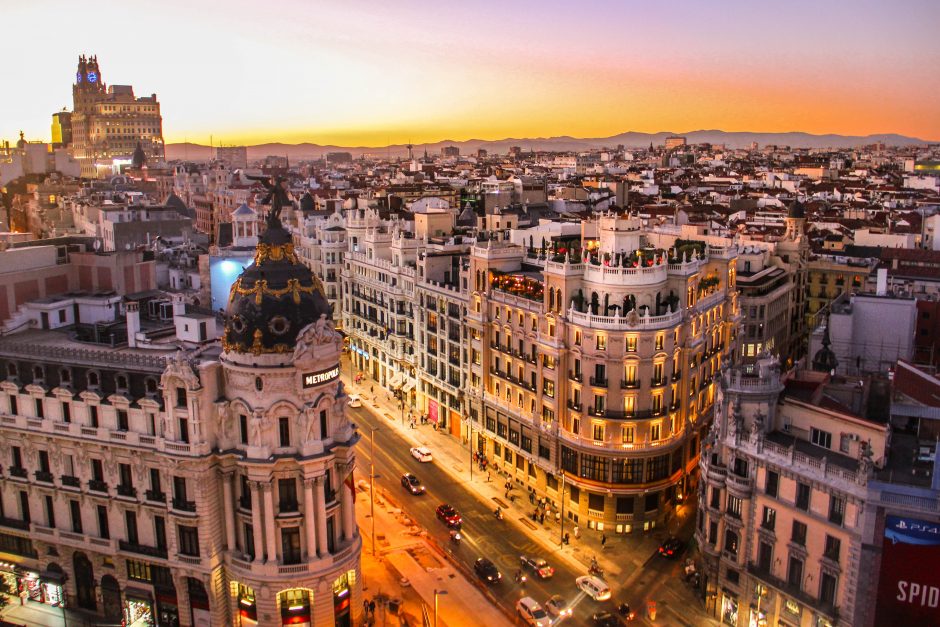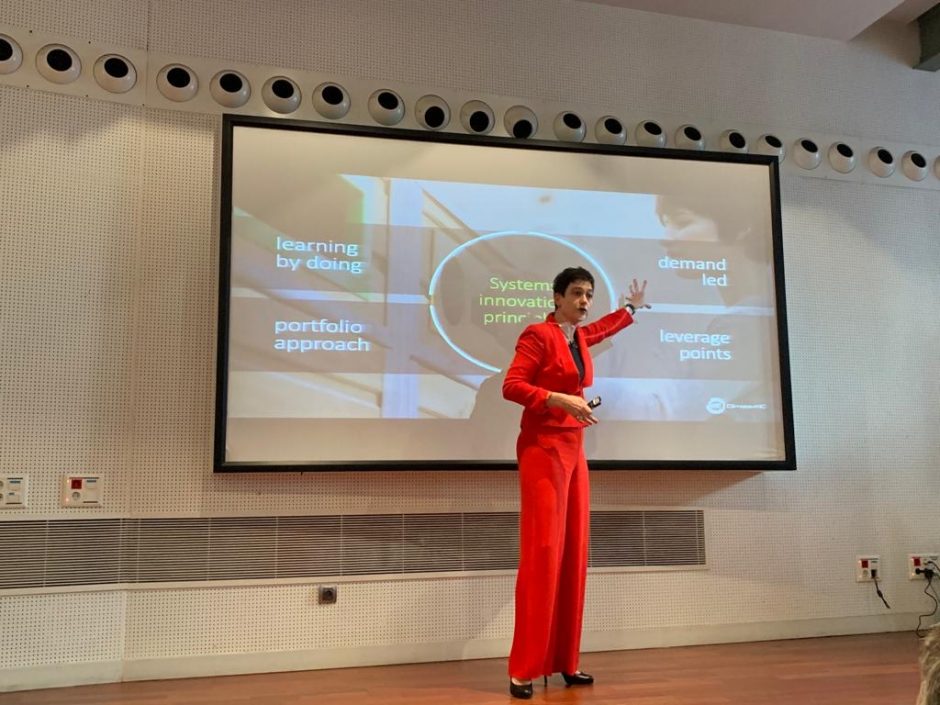COP25: Madrid city side event

With the carbon costs of travel in mind, key Climate KIC COP25 session summaries are available online for those who cannot attend—and for review for those present. These summaries aim to extract important debates, dialogues, and learnings from each session.
Yesterday, Climate KIC’s CEO Kirsten Dunlop delivered a speech on the organisation’s Transformation, In Time strategy and a Deep Demonstration on cities at the COP25 Madrid City Side Event.
Cities occupy only two per cent of the world’s landmass, yet they consume more than two-thirds of its energy and are responsible for over 70 per cent of CO2 emissions. With 90 per cent of cities located on coastlines, they’re vulnerable to climate change impacts like rising sea levels and coastal storms.
Therefore, cities are called to play a decisive role in mitigating and adapting to climate change and these transformations require collaboration between all levels of society, including administrations, companies, universities, research institutions and citizens. As a city selected by Climate KIC, Madrid is taking up this ambitious challenge.
Climate KIC’s work with Madrid is part of its larger strategy, Transformation, In Time, which aims to help Europe mitigate and adapt to climate change through innovation:
“We need to innovate the way we use innovation,” said Dunlop. “We want to make ourselves a prototype for how to do innovation in a way that catalyses systems change.”
She said scale, complexity and time are core challenges, and that if there were a simple, technological solution, we’d be implementing it.
This is why Climate KIC is transitioning from supporting incremental change towards accelerating systemic change. To achieve this, it proposes shifting from single-point solutions, which are often technology-focused, towards a ‘portfolio approach’. That is, supporting and connecting systems interventions to one another such that they mutually drive impact. The organisation is calling these systems innovation projects “Deep Demonstrations.”
Deep Demonstrations aim to act as case studies that can be replicated or adopted in other parts of the world to enable global systemic change. For Climate KIC, knowledge sharing across borders is key to raising the bar on climate action.
One of Climate KIC’s most developed Deep Demonstrations is supporting the government of Slovenia towards a circular economy. Since this project involves many sectors and people—industry, education, food production, mobility and more—many partners are involved, including other EIT Knowledge and Innovation Communities.
“The need and demand for systems change is strong,” said Dunlop. “This is just the beginning.”
Madrid Deep Demonstrations
Climate KIC held an initial working session with design partners on 17-18 October; these included the Madrid City Council and UPM, along with Ferrovial and Iberdrola. The working session was designed to build trust and align on a way of working together.
Madrid was exemplary in preparing and participating in this first working session, which helped Climate KIC learn how its approach can help unlock the aspirations of leaders in the city and its wider community.
The working session also enabled the team to identify key areas of focus and begin to strategise a portfolio of innovations for systemic change:
- Metropolitan Forest initiative: A key opportunity we’re exploring is how to move from an effort to incrementally identify plots of land the city could acquire for tree planting to a model for how the city can consider trees as critical infrastructure for delivering a number of benefits—from reducing urban heat island effect, to renewing soils and managing storm water (and possibly grey water), to new mobility corridors, to biodiversity and urban food production (e.g. fruit and nut trees)
- By bringing together multiple elements of mobility—parking strategy, shared electric vehicles (bikes, cars and others), reducing commuting demands, etc.—we are looking at options to help entire communities move much faster in reducing unnecessary reliance on driving, while improving air quality and associated public health
- Help Madrid (working with other cities in the Healthy, Clean Cities Deep Demonstration) to advance next generation models for commercial logistics, including last-mile delivery services, in order to radically reduce the need for large trucks moving through the city on a daily basis. This approach will entail exploring new business models for logistics services, which can offer improved work for community members, while reducing congestion and improving air quality
- Build upon the success of C40’s Reinventing Cities to further advance community-scale innovations in how we adapt sites and existing buildings (like Matadero) for community benefit, while testing emerging technologies
- Create an engaging way for Madrid’s citizens to consider the relationship between consumption and climate change, and to contribute to the advancement of a circular economy

